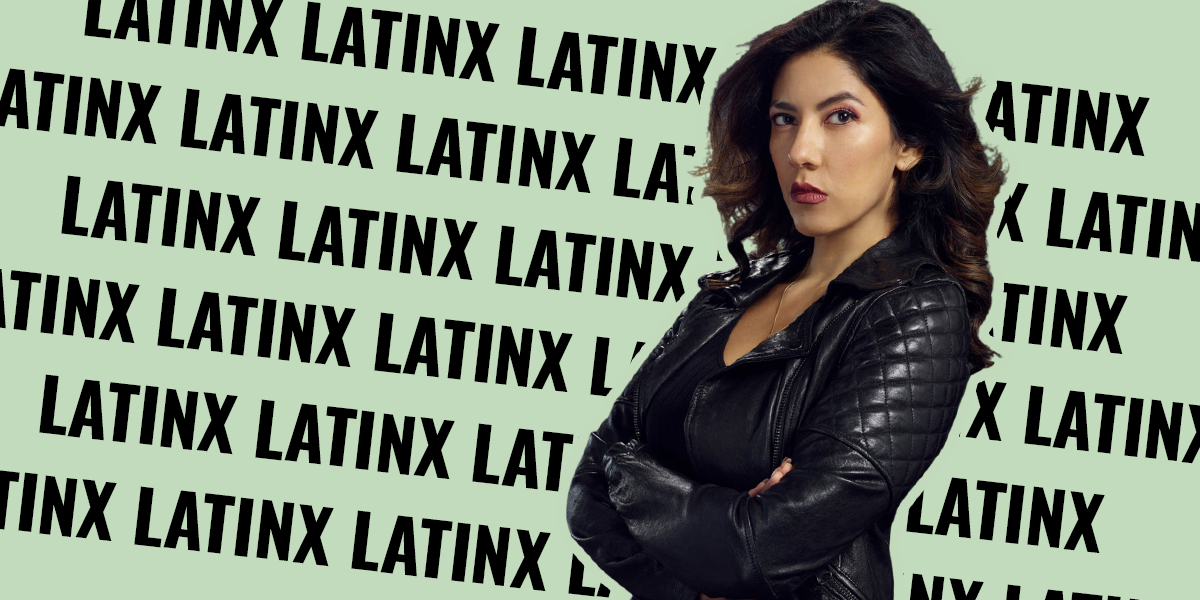I love the word Latinx. But if you’ve participated in “Hispanic” social media over the last few years, there are people who absolutely. Hate. It. “What the hell is Latinx?” “Nobody I know uses that word.” “Ugh, gringos need to stop.” I get it: it’s new, identity is important, and people should label themselves as they see fit. But I can’t help but think that one of the reasons my community members are so resistant to the word is the age-old problem of homophobia.
You don’t have to be an academic to understand that the Latino community has its fair share. I was raised in the Roman Catholic faith, and while I won’t assume every Catholic or Hispanic person is a hateful bigot, the things I heard and saw do not paint my community in a positive light.
Picture this: middle school me, riding the yellow school bus home, dressed in a shirt that says I love school. What’s it to you? and a headband that barely tames my unruly hair. A few of my Latina peers tease me. So, a regular Friday. I’m your typical tomboy, raised to do what any boy can do and proud of it.
“She’s such a dyke.” Laughter ensues, and I pretend to sleep, but the damage is done. I hide the slur deep within, and I, being the product of my environment (that’s an acceptable excuse, right?), continue to be homophobic myself, at least until high school. After much internal searching, a loss of faith in religion, and the discovery that my own sexuality was more fluid than what I was taught, Christy of 2021 has grown beyond the confines of her strict upbringing. I’m willing to bet I’m not the only one.
The road to inclusion is a rough one, though. How many of these experiences are you familiar with? A male family member being called a f*g for acting childish or girly. Pride flags mysteriously disappearing from your stash of belongings. “Don’t hate the sinner; hate the sin.” And the list goes on and on.
Which is why seeing a character like Detective Rosa Diaz (played by Stephanie Beatriz) was a breath of fresh air. A Latina you can’t help but take seriously; she’s tough, hilarious in her delivery, and doesn’t take crap from anyone.
Her coming out to her parents as bisexual and being subsequently rejected was tough for me to watch, like I saw my own fear play out on screen. But she made it through. Her network of support was there for her when her blood relatives weren’t. Diaz taught me that while you can’t always escape the pain of bigotry, you can find comfort in the ones that matter.
Why We Shouldn’t Scoff At Latinx
According to OxfordLanguages, Latinx is “a person of Latin American origin or descent (used as a gender-neutral or nonbinary alternative to Latino or Latina).” Personally, I also apply the term toward the Latin American queer community as a whole.
You may not wish to label yourself Latinx, but there are some pretty good reasons to respect its usage by others in our community:
- Just like transwomen are women, nonbinary and queer Hispanics are Hispanics. They aren’t “fake” or “funny” and should be embraced. As I say in my poem Dictionary Definitions, Latinx is “a way to include the people my parents said didn’t exist, couldn’t exist, whose existence was against their values, their culture, my culture.”
- Pod of whales, murder of crows: Gender-neutral language includes everyone. I don’t know about you, but it’s annoying when a crowd of nine Latinas and one Latino is considered a group of “Latinos.”
- This is for all my writers out there: let’s say Latinos doesn’t work for you. Who wants to go around writing Latinas/Latinos or his or her throughout a doc or email? It’s exhausting and downright impractical.
- I side-eye anyone who reacts almost violently or with visible disgust to the use of the word. Once again, you don’t have to use it, but extreme reactions to Latinx set off my safety alarm bells and, in turn, filter out the possible homophobes.
As much as I would like Latinx to take the world by storm, my goal here is not to force its adoption. If it doesn’t survive the sands of time, so be it. I’d much rather eradicate the homophobia that taints the rejection of Latinx. Until then, I’ll enjoy sharing, participating, and writing in spaces that accept people like me who don’t quite fit into the mold of yesteryear. It only took a few decades, but the Latin American community is finally starting to feel like home.

